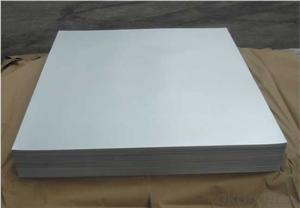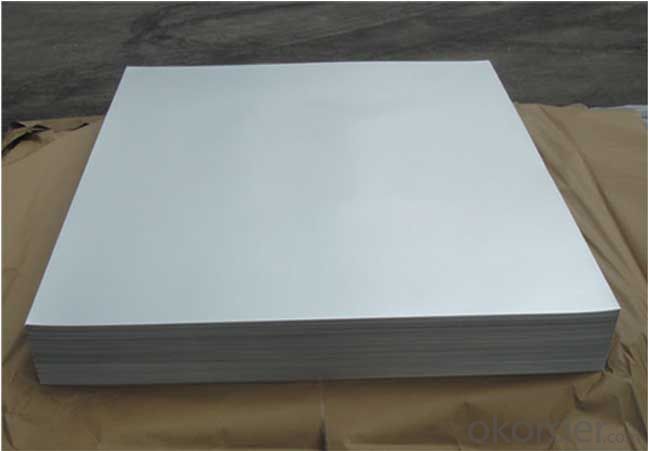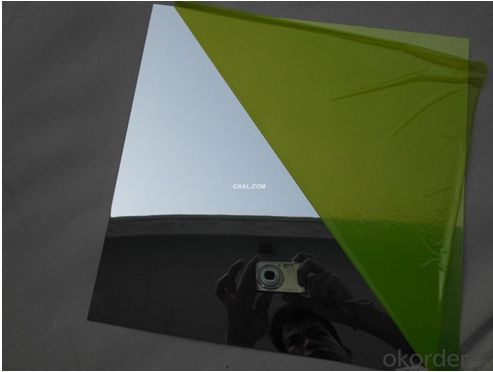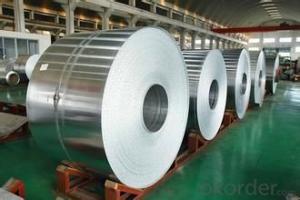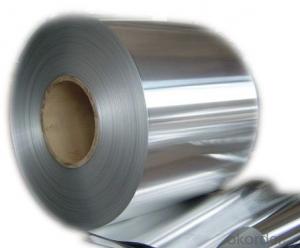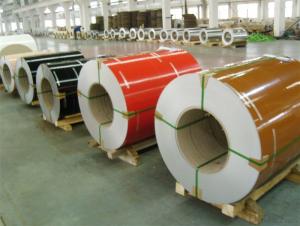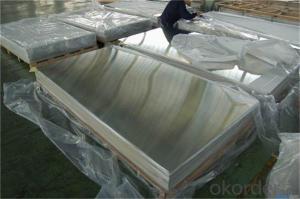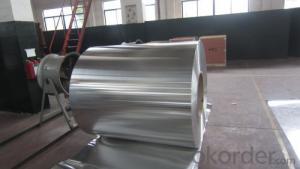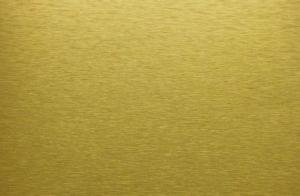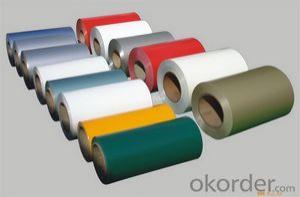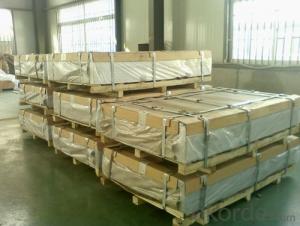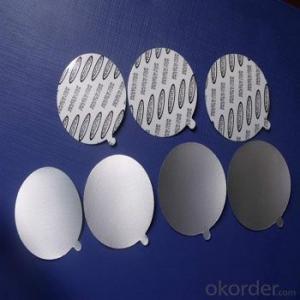Customized 3003 Aluminum Coil - Aluminium /Aluminio /Alumina Sheet 1050 1060 1100 3003 3105 5005 5052 5754 5083 6061 6082
- Loading Port:
- Shanghai
- Payment Terms:
- TT OR LC
- Min Order Qty:
- 5 m.t.
- Supply Capability:
- 10000 m.t./month
OKorder Service Pledge
OKorder Financial Service
You Might Also Like
Specification
1.Structure of Aluminum Sheet Description:
Construction material with good ductility, polishing ability and corrosion resistance, good electrolytic oxidation, suitable for welding. Have good plasticity qualities in an annealed state suitable when hardened.
2.Main Features of Aluminum Sheet:
Good Ductility
Polishing Ability and Corrosion Resistance
High Quality
Competitive Price
3. Aluminum Sheet Images:
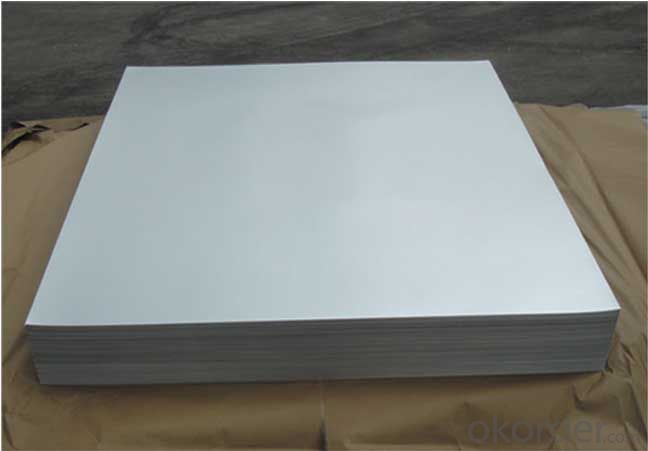
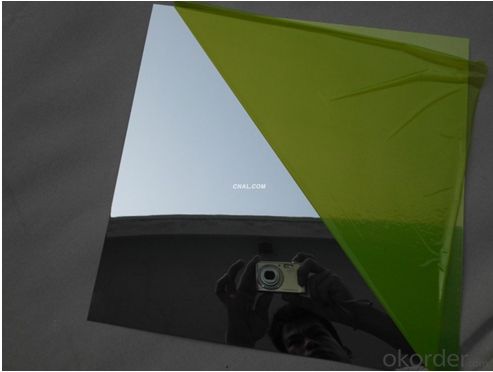
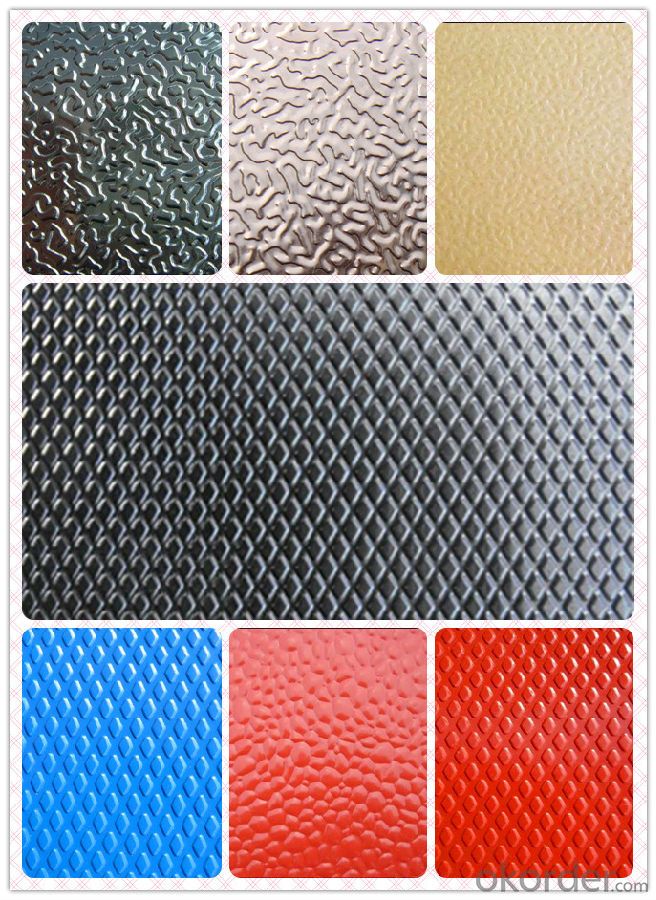
4. Aluminum Sheet Specification:
| Aluminium Alloy | Thickness (mm) | Width (mm) | Length (mm) | Temper | |
| A1050,A1060,A1070,A1100 | 0.15-200 | 20-2620 | 20-8000 | O,H12,H14,H16,H18,H22,H24,H26 | |
| A3003,A3004,A3105 | 0.15-200 | 20-2620 | 20-8000 | O,H12,H14,H16,H18,H22,H24,H26 | |
| A5052,A5005,A5083,A5754 | 0.15-200 | 20-2620 | 20-8000 | O,H12,H14,H34,H32,H36,H111,H112 | |
| A6061,A6082,A6063 | 0.15-200 | 20-2620 | 20-8000 | T4,T6,T651 | |
| A8011 | 0.15-200 | 20-2620 | 20-8000 | O,H12,H14,H16,H18,H22,H24,H26 | |
| Material process | CC AND DC | ||||
| Customerize size | Size can be produced as per clients requirement | ||||
| Surface | Mill finish ,Color coated(PVDF& PE),Stucco Embossed ,Bright Polish,Anodizing | ||||
| Mirror,Brush,Perforated,Tread plate ,Corrugated etc | |||||
| Quality Standard | ASTM B209,EN573-1 | ||||
| MOQ per size | 2 tons | ||||
| Payment Terms | TT OR LC OR DP at sight | ||||
| Delivery time | Within 25 days after receipt the lc or deposit | ||||
| Material Quality | Tension levelled ,flat ,Free of defects like oil stain,Roll Marks,Waves,Dents | ||||
| scratches etc ,A+++ quality, production process passed sgs and bv inspection | |||||
| Application | Construction ,Building,Decoration ,Curtain Wall ,Roofing,Mould,Lighting, | ||||
| curtain wall, ship building,Aircraft,Oil Tank ,Truck Body etc | |||||
| Packing | Standard export worthy wooden pallets,and standard packing is about 2 tons/pallet | ||||
| Pallet weight also can be as per client's requirement | |||||
5.FAQ
Q1.How long have you been in this product?
A1:More than 10 years.
Q2. What's the minium quantity(MOQ)?
A2. 5 Metric tons
Q3. How long is shipping time?
A3. 7 (ready-made products)-25 days(OEM)
Q4. How do you guarantee the quality?
A4. 1. Cooperating and Exchaning experience with sevral quoted aluminum companies
2. Japanese and Swiss production line and skilled works (regular training and testing)
3. more than 10 years production experience.
Q5. Do you have after sale service?
A5. Yes. Any quality problem occurs within one year, pls take photoes,we will be responsible.
- Q: Is it possible to construct a bird feeder using an aluminum coil?
- <p>Yes, you can use an aluminum coil to make a bird feeder. Aluminum is lightweight, durable, and resistant to rust, making it a suitable material for outdoor use. To create a bird feeder, you can form the coil into a hanger or support structure, then attach a feeding platform or container where birds can access the food. Ensure the structure is stable and safe for birds to perch and feed. Remember to use appropriate tools and safety measures when working with aluminum, and consider painting or coating the coil to enhance its appearance and protect it from the elements.</p>
- Q: How are aluminum coils used in HVAC systems?
- Aluminum coils are used in HVAC systems for their efficient heat transfer capabilities. They are typically used in air conditioning units and heat pumps to cool or heat the air that circulates through the system. The coils play a crucial role in the refrigeration cycle by absorbing heat from the indoor air and releasing it outside. The lightweight and corrosion-resistant properties of aluminum make it an ideal material for these coils, ensuring efficient and reliable performance in HVAC systems.
- Q: who invented aluminum and or aluminum foil?
- placed extremely oil or butter on a paper napkin or paper towel and rub on the pan. do not forget the ends, it truly is the position pies especially stick. No, it truly is not had to oil an aluminum pan, in spite of the undeniable fact that the perimeters do look to adhere.
- Q: Who knows Xingtai aluminum shutter door how much is one square meter?
- Aluminum alloy rolling doors more than 10 specifications, prices are not the same, depending on the sample to know the price, the price range is probably between 100--800, a great difference between Oh!
- Q: Are aluminum coils compatible with other materials?
- Yes, aluminum coils are compatible with various materials, including steel, copper, and other non-ferrous metals. They can be used in conjunction with different materials to enhance their performance and provide various industrial applications.
- Q: How do aluminum coils perform in high-temperature applications?
- Aluminum coils excel in high-temperature scenarios due to their exceptional performance. Renowned for their superb heat conductivity and high melting point, aluminum coils can withstand extreme temperatures while maintaining their structural integrity. As a result, they are widely favored in various industries, such as automotive, aerospace, and HVAC systems, where heat transfer and dissipation are crucial. A key advantage of aluminum coils in high-temperature applications lies in their efficient heat transfer capabilities. Unlike commonly used metals like copper or steel, aluminum boasts significantly higher thermal conductivity. Consequently, aluminum coils swiftly and effectively transfer heat from one area to another, ensuring efficient heat dissipation and preventing overheating. Furthermore, aluminum possesses a melting point of 660 degrees Celsius (1220 degrees Fahrenheit), surpassing that of many other metals. This notable attribute enables aluminum coils to endure high temperatures without distortion, warping, or compromising their structural integrity. Their stability in elevated temperatures renders them highly suitable for applications where heat resistance is essential, such as engine cooling systems or industrial ovens. Moreover, aluminum coils offer the advantage of being lightweight compared to other metals, making them even more beneficial in high-temperature environments. Their low density facilitates easier handling and installation, thereby reducing the overall weight of the system. This aspect is particularly valuable in industries like automotive and aerospace, where weight reduction plays a significant role in enhancing fuel efficiency and overall performance. In conclusion, aluminum coils are exceptionally dependable and prove to be highly efficient in high-temperature applications. Their outstanding heat conductivity, high melting point, and lightweight properties make them an ideal choice for industries that require effective heat transfer, dissipation, and resistance to heat.
- Q: Can aluminum coils be used in heat sinks?
- Yes, aluminum coils can be used in heat sinks. Aluminum is a popular choice for heat sinks due to its excellent thermal conductivity. Heat sinks are designed to dissipate heat from electronic components and other devices to prevent overheating. The use of aluminum coils in heat sinks allows for increased surface area, which enhances heat dissipation. The coils can be shaped and arranged in various configurations to optimize cooling efficiency. Additionally, aluminum is lightweight, corrosion-resistant, and cost-effective, making it a practical choice for heat sink applications.
- Q: Are aluminum coils suitable for weather-resistant applications?
- Indeed, weather-resistant applications are well-suited for aluminum coils. Renowned for its exceptional corrosion resistance, aluminum remains a favored option for outdoor and weather-exposed uses. When in contact with air, the metal develops a safeguarding oxide layer on its surface, effectively shielding it from moisture, humidity, and other weather elements. This oxide layer plays a vital role in averting rust or degradation over time. Moreover, thanks to its lightweight nature and impressive strength-to-weight ratio, aluminum proves to be a pragmatic selection for an array of weather-resistant applications including roofing, gutters, siding, and outdoor signage.
- Q: My boyfriend sweats a lot and uses Mitchlum deodorant, a lot of it, under his armpits and waits til it dries to stop the sweating. I heard aluminium was bad for you, but he says natural deodorants don't work as well. What do you think?
- different styles and types of deodarants work on different people experiment on lots of deodarant and see which one where u can not use to much but is still petty effective
- Q: What are some common defects in aluminum coils?
- Some common defects in aluminum coils include: 1. Surface defects: These can include scratches, pits, dents, or waviness on the surface of the coil. These defects can occur during the manufacturing process or due to mishandling during transportation or storage. 2. Edge defects: These can include burrs or uneven edges on the coil. They can be caused by improper slitting or cutting processes. 3. Coating defects: If the aluminum coil is coated with a protective or decorative coating, defects such as peeling, cracking, or uneven coating thickness can occur. This can be caused by improper application or curing of the coating. 4. Corrosion: Aluminum is generally known for its corrosion resistance, but it can still be prone to corrosion in certain environments. Corrosion can manifest as pitting, staining, or white powdery deposits on the surface of the coil. 5. Alloy defects: In some cases, the aluminum alloy used in the coil can have defects such as inclusions, impurities, or improper alloy composition. These defects can affect the mechanical properties and overall performance of the coil. 6. Coil shape defects: Aluminum coils should have a uniform and consistent shape, but defects such as coil set (where the coil retains a curvature after unwinding) or camber (where the coil has a slight curvature across its width) can occur. These defects can be caused by improper tension or cooling during the manufacturing process. 7. Weld defects: If the aluminum coil is made by welding together multiple sheets or strips of aluminum, defects in the welds can occur. These can include incomplete welds, cracks, or porosity. These defects can weaken the coil and affect its structural integrity.
Send your message to us
Customized 3003 Aluminum Coil - Aluminium /Aluminio /Alumina Sheet 1050 1060 1100 3003 3105 5005 5052 5754 5083 6061 6082
- Loading Port:
- Shanghai
- Payment Terms:
- TT OR LC
- Min Order Qty:
- 5 m.t.
- Supply Capability:
- 10000 m.t./month
OKorder Service Pledge
OKorder Financial Service
Similar products
Hot products
Hot Searches
Related keywords
